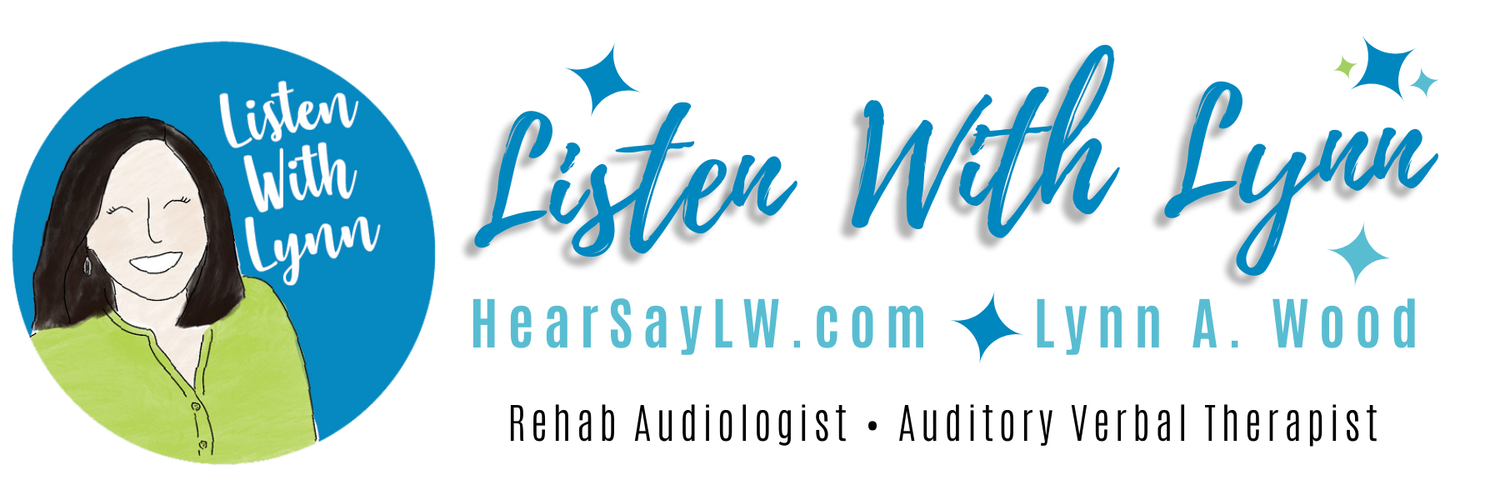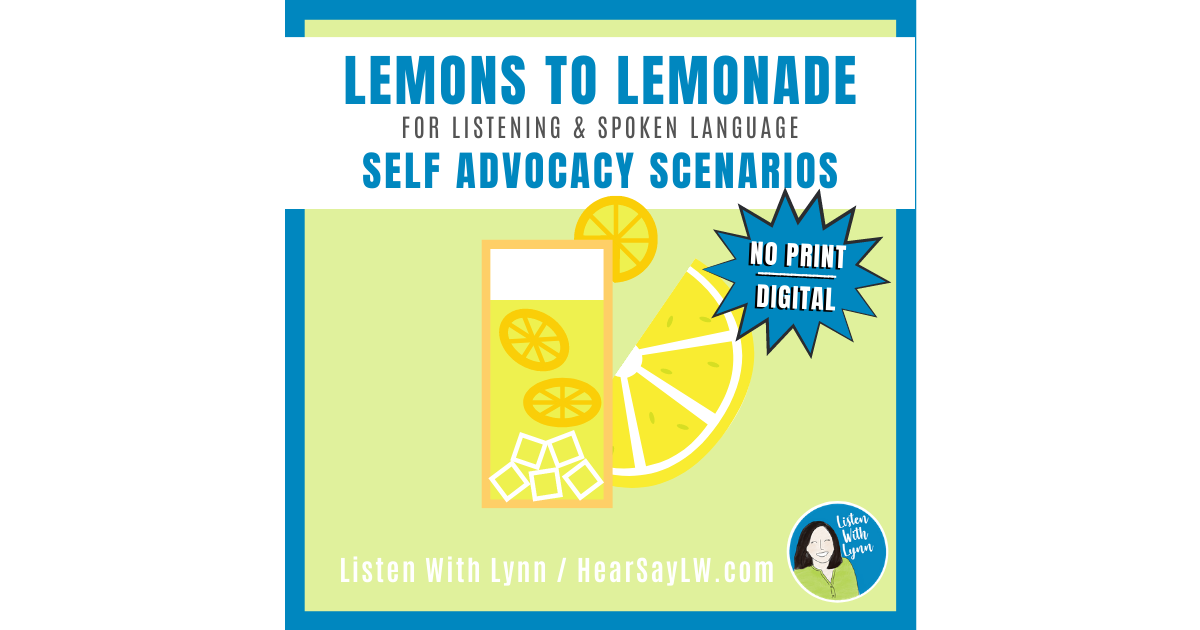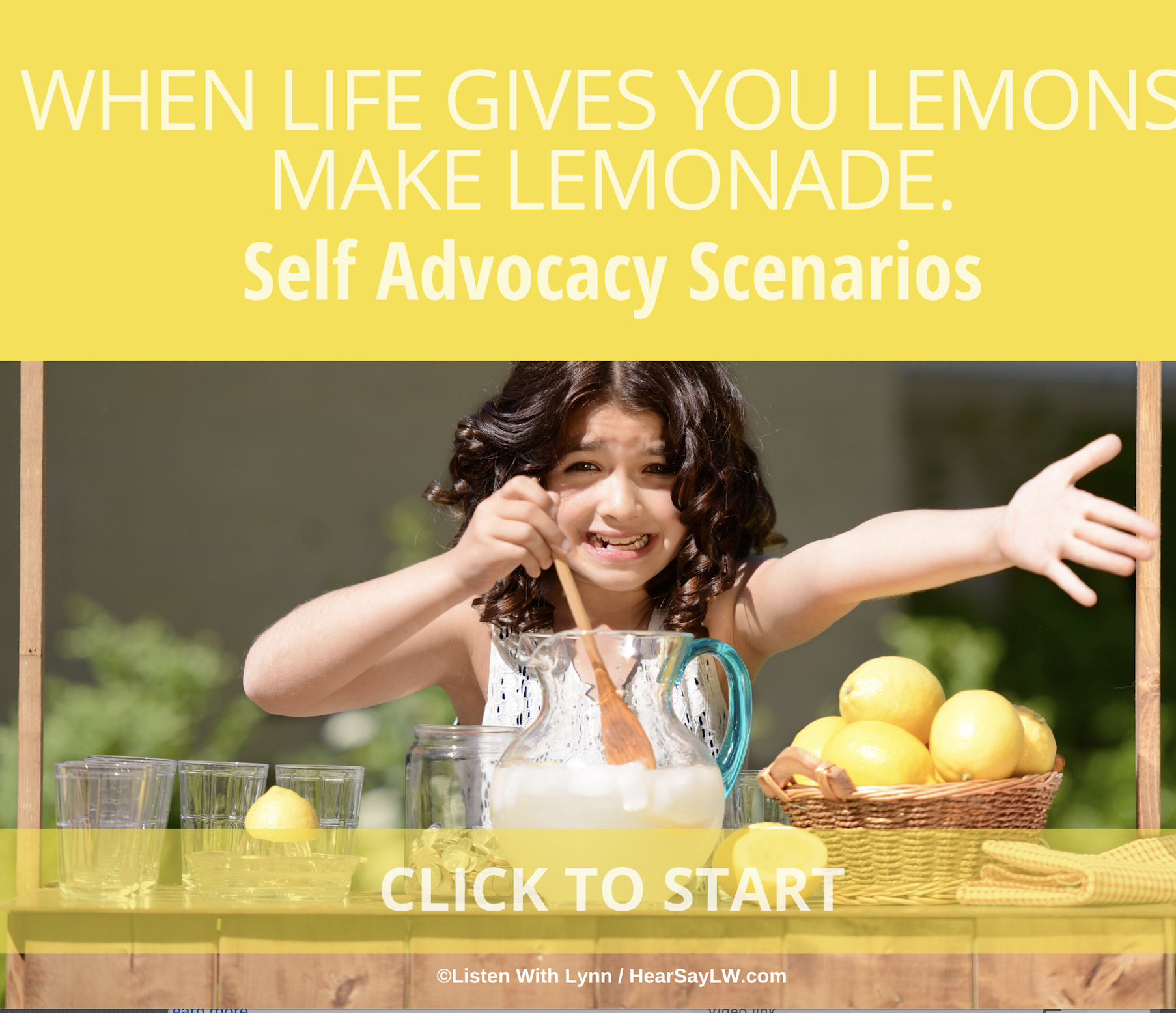For individuals that are deaf and hard of hearing self-advocacy and personal responsibility are keys to success. Advocacy means standing up for your needs which requires knowledge, skills, and practice.
Fostering self-advocacy must begin early when a baby or very young child is fit with hearing devices and woven into the routines of daily life. In the preschool years, responsibility and self-advocacy are explicitly taught and practiced at home, in therapy, and at school. Elementary-aged children learn new skills related to their hearing, hearing technology, access to sound, services, and communication strategies. Expanding and evolving self-advocacy skills grow and adapt as new challenges are faced throughout school and for a lifetime.
When Life Gives You Lemons Make Lemonade
A scaffolding strategy, I find successful when introducing self-advocacy to preschoolers in auditory verbal therapy begins with an experiential language activity of making homemade lemonade. This rich experience sets a foundation for an ongoing series of lessons on self advocacy and the premise of this resource. Children in my practice learn early, they are the boss of their hearing loss. Sometimes life hands them sour lemons but they can choose to turn those lemons into sweet lemonade.
20 Scenarios
Twenty scenarios portray common situations encountered by school-aged children and are derived from true stories I have heard from children over the years. Each scenario requires problem-solving and brainstorming possible solutions for each difficult situation. While the theme is making lemonade the scenarios are common listening situations where problems may occur due to the setting, the listener or the person talking.
The adult reads aloud each scenario. The child listens to the lemon situation and retells or paraphrases it in their own words. The adult asks, “How can you make lemonade out of this lemon situation?” and guides a discussion using the given prompts with each scenario. Together they think about the difficult (sour lemon) situation and ways to address the communication breakdown and how to turn those lemons into sweet lemonade.
The scenarios are of real photos that elicit language and engagement. This resource is a digital interactive PDF with clickable buttons to navigate between pages. It was created to be used in teletherapy and as no print in face to face lessons/sessions.
The video shows the format for this resource. Remember, sometimes life hands you sour lemons but you can choose to turn those lemons into sweet lemonade.


